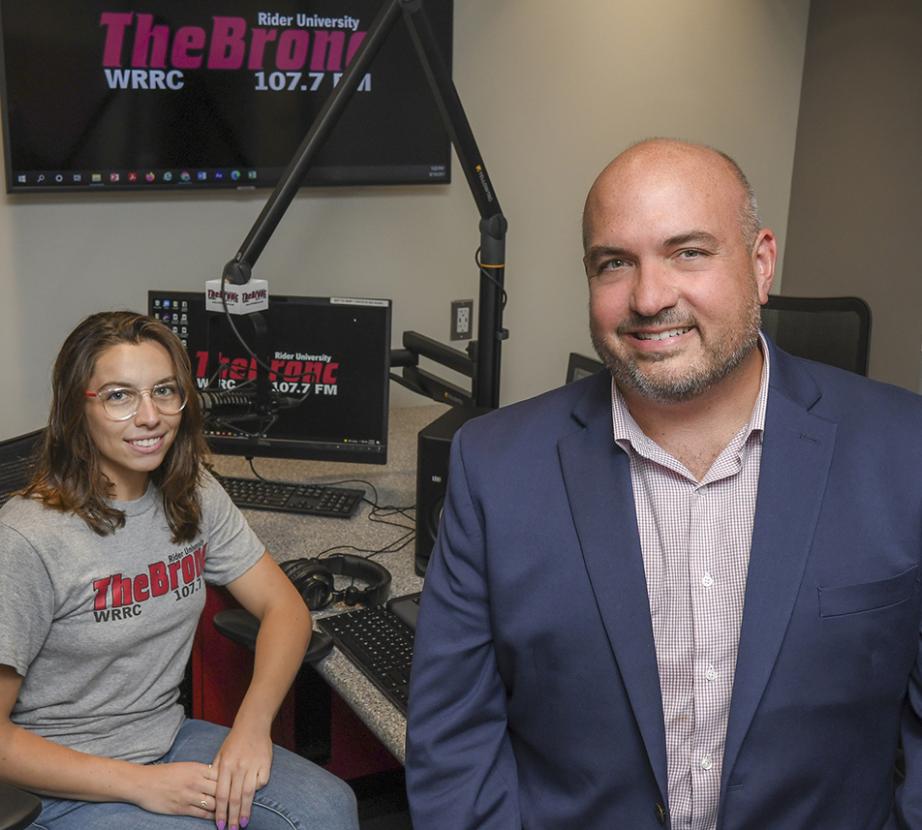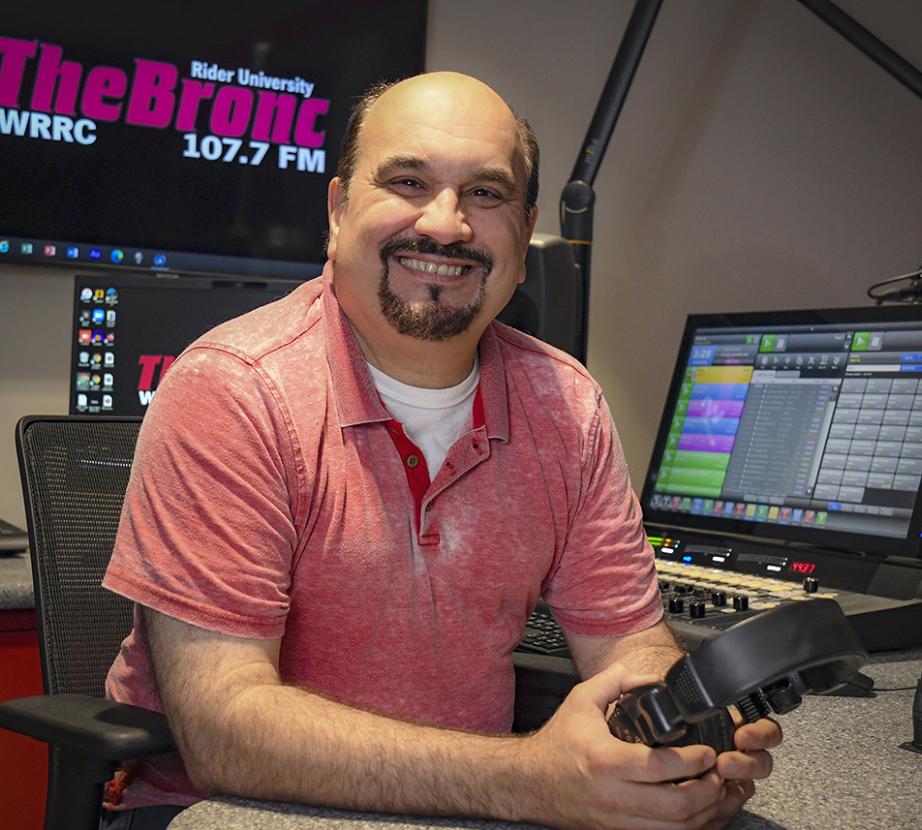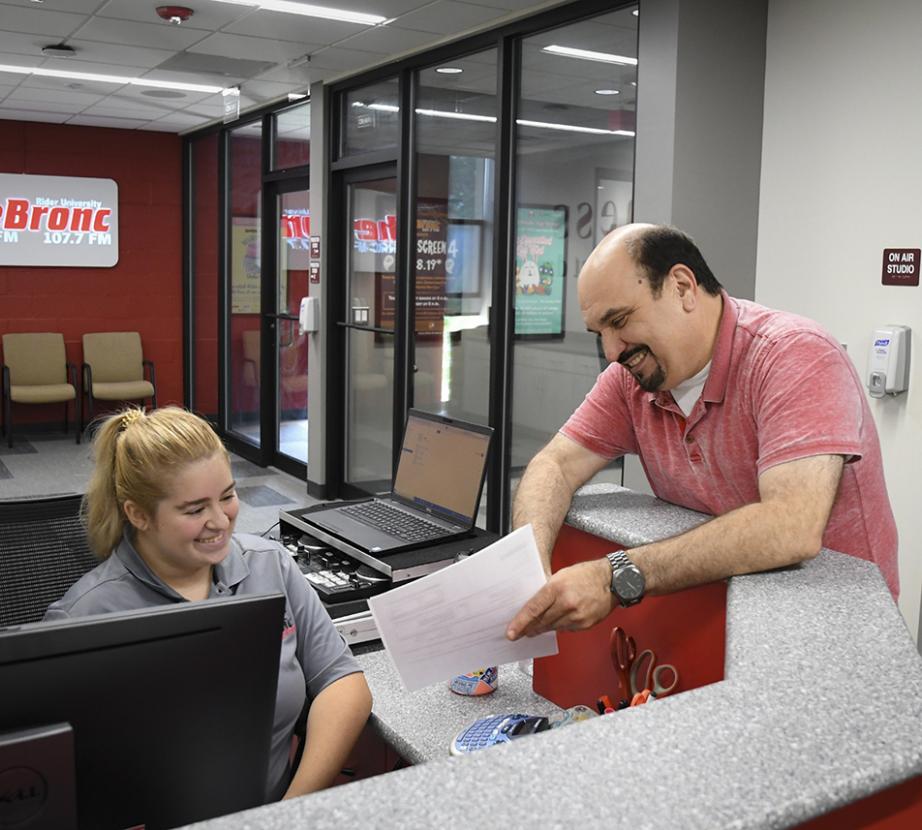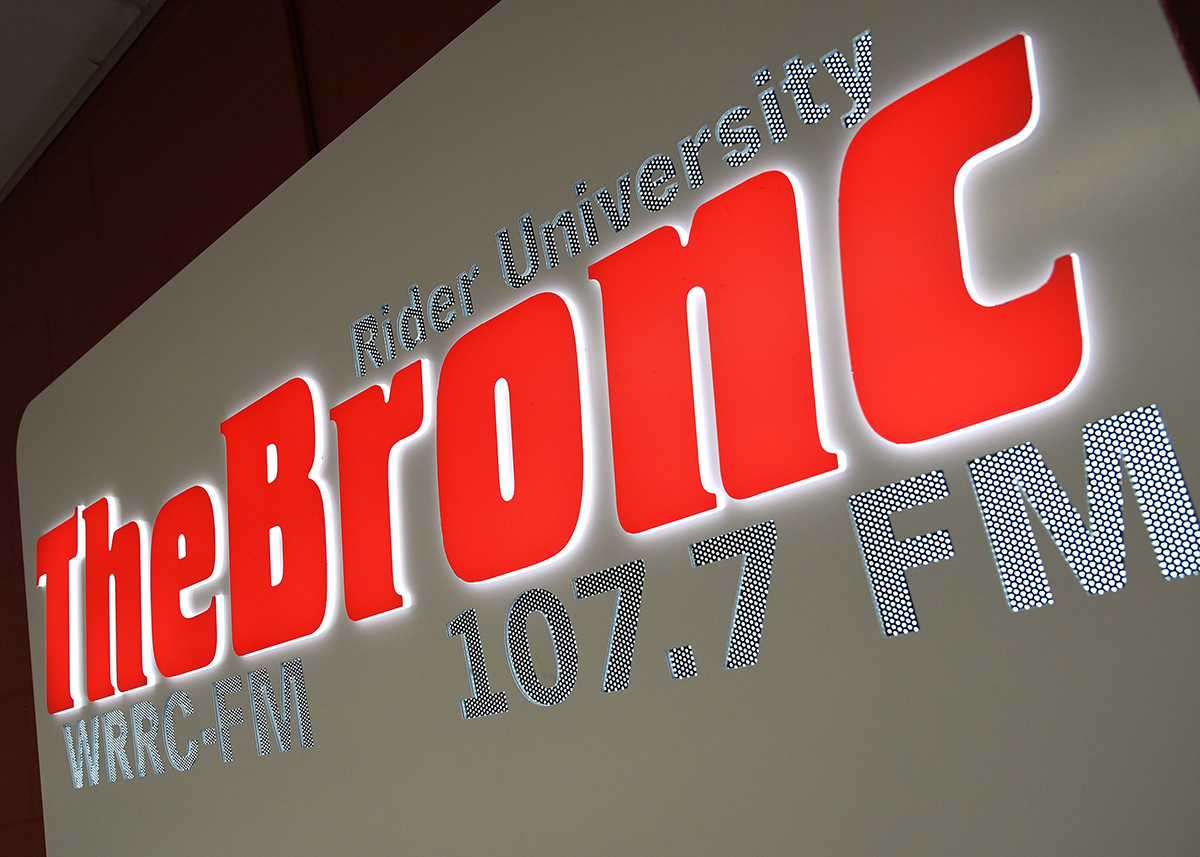Friday, Aug 20, 2021
Rider’s 107.7 The Bronc is increasingly becoming a one-stop-shop to create and distribute podcasts
by Adam Grybowski
If the saying "everyone has a podcast now" is true, it is equally true that everyone who has a podcast at Rider University produces it at 107.7 The Bronc.
The University’s student-run radio station, 107.7 The Bronc is increasingly becoming a one-stop-shop for those who want to reach audiences that, year in and year out, listen to more and more podcasts. As of this year, 41% of Americans 12 or older have reported listening to a podcast in the past month, according to research compiled by the Pew Research Center. In 2008, the figure stood at just 9%.
Led by general manager John Mozes, The Bronc has embraced the format as a natural partner to its traditional offerings. Today, all of the sponsored weekend shows are available as podcasts, and even outside entities, such as the sports betting podcast The Feinline, are working with the station to produce, format and distribute original podcasts.
“I can’t say enough about John and his staff and how much and how well they guide you in the process of producing a podcast,” says Dr. Eugene Kutcher, dean of Rider’s Norm Brodsky College of Business and the host of the podcast Off the Clock. “So much of the work is second nature to them.”
Off the Clock grew out of a popular in-person event the Kutcher used to host on campus before the pandemic. He describes the event as a way to build connections between faculty, students and alumni. When the concept became impossible to continue during the pandemic, a student, Alec Grossman '21, had the idea to continue the concept in a different format.
The only problem? No one involved with the production had the technical skills or the equipment to get started immediately. “But then we realized we do have the resources,” Kutcher says. Enter Mozes and his highly motivated team of student workers.
-
 Dr. Gene Kutcher works with 107.7 The Bronc to produce the podcast "Off the Clock."
Dr. Gene Kutcher works with 107.7 The Bronc to produce the podcast "Off the Clock." -
 107.7 The Bronc's general manager John Mozes.
107.7 The Bronc's general manager John Mozes. -
 The station's new location features all new digital audio production equipment.
The station's new location features all new digital audio production equipment.
Kutcher had gotten as far as purchasing some fancy microphones before turning to The Bronc’s new digital studios. The radio station moved to a new location on campus in 2020, which coincided with the purchase of all new digital audio production equipment. The new studio location includes three multipurpose on-air studios and production rooms where students can produce professional shows, announcements, promos, sweeps, news and more.
“Podcasting is an inexpensive format — anyone can do it,” Mozes says. “But it helps to have a state-of-the-art studio. A podcast is always going to sound better recorded in a professional recording studio.”
107.7 The Bronc began expanding into the world of podcasting more than a decade ago, when Your Career Is Calling became the station's first show to also be offered as a podcast. Since then, most podcasting platforms have made it easier to upload and distribute shows, Mozes says.
Last year, Rider recognized the increasingly blurred distinction between traditional broadcasting and podcasting — and the opportunities inherent in both formats for students — when it adapted its curriculum to offer a bachelor’s program in radio and podcasting.
Offered through Rider's Department of Communication, Journalism, and Media, the bachelor's program allows students to gain invaluable professional experience working on 107.7 The Bronc's radio programs and podcasts. A student serves as producer of each of the station's shows. Mozes points out that these students are not acting as support staff or interns tasked with meaningless duties.
"The student is doing the job," he says. "They grow and learn a lot over a full year. After that time, they've experienced almost everything you can imagine happening in a radio station."
It’s not just the technology and the new studios, it’s a thoroughly professional shop. I often forget that I’m working with students; it mostly feels like I’m working with teammates.
Mozes requires students to commit to at least a full year, which provides both more depth to the student's experience and stronger continuity to the clients who host shows, such as Kutcher.
“The training the students have, it’s very professional,” Kutcher says. “It’s not just the technology and the new studios, it’s a thoroughly professional shop. I often forget that I’m working with students; it mostly feels like I’m working with teammates.”
This summer, the radio station launched its first podcast that expands beyond audio. The "How to Bet" podcast is offered through video.
"The 107.7 The Bronc broadcast studios are an amazing place to record," says Cristian Crampan, the commercial production lead of Raketech, which produces "How To Bet." "We searched for a very long time and this studio turned out to be the best priced and most advanced and had the best equipment for what we needed. The team works around the clock to make sure the recordings come out better than we ever imagined. We recommend this place for anyone who needs amazing podcasts, videos or a radio show recorded for them."
Even as Mozes helps the station embrace changes in technology, the radio veteran remains clear-eyed about what all of these formats have in common.
"No matter if you are creating a podcast or broadcast show, these are all great ways to network and build a client base," he says. "They are all chances to grow your business in an entirely different way. Audio is a comfortable and intimate platform to get your message out, but it’s also a great way to build relationships with people. As the audio medium continues to expand, many people look at this format and see entrepreneurship opportunities, and students see job opportunities.”

